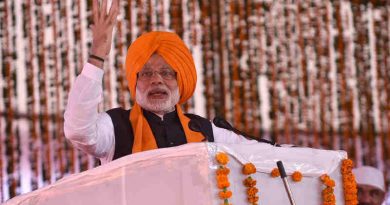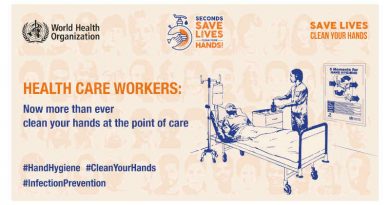Clean Contracting Can Stop Corruption in Coronavirus Funds

As the rapid spread of the coronavirus or COVID-19 pandemic continues around the world with devastating effects, global anti-corruption organization Transparency International highlights the possibility of corruption in public procurement.
According to Transparency, the growing crisis brings two issues into clear focus: the importance of government action in the emergency response and the essential and often lifesaving role of public procurement.
Clean public procurement not only saves money, but most importantly, it saves lives by making sure the people who are most vulnerable receive the support they need.
Yet, according to Transparency, the ongoing global health crisis exposes vulnerabilities in public procurement: loose requirements that contribute to unequal competition and bidding wars and rushed measures that result in low quality or faulty goods, price gouging, undue influence, and limited access to information.
[ Modi Govt Uses Coronavirus to Open Corruption Floodgates in India ]
Under normal circumstances, governments routinely spend huge sums of money on the public procurement of vital goods and services from private companies. Procurement budgets often fluctuate between 13 and 20 per cent of a country’s gross domestic product (GDP), totaling an estimated global average of US$9.5 trillion per year.
While most of this money is paid for improvements to essential public services, ranging from roads and bridges to library books and medical equipment, a lot can be siphoned off through corruption.
According to the United Nations Office on Drugs and Crime (UNODC), corruption and fraud may amount to 10 – 25 per cent of procurement budgets. In real life, this means vital services are never delivered, much needed equipment never reaches hospitals, critical infrastructure is never built and people’s lives and well-being are at needlessly risk.
[ 10 Reasons Why You Must Not Trust India’s Coronavirus Data ]
Equally alarming, 57 per cent of foreign bribery cases prosecuted under the Organisation for Economic Co-operation and Development (OECD) Anti-Bribery Convention involved bribes to obtain public contracts. According to OECD estimates, up to US$2 trillion of procurement costs could be lost to corruption.
For COVID-19, the World Bank already announced contributions up to US$160 billion over the next 15 months to strengthen developing country responses. The International Monetary Fund (IMF) announced US$1 trillion in funds to member countries, which resulted in urgent calls for greater transparency from several NGOs.
[ IMF Urged to Make Coronavirus Funds Transparent ]
Multilateral banks are not the only actors supporting a speedy recovery. Central banks, private companies, philanthropists, and other regional and international bodies are injecting trillions of dollars to overcome the global COVID-19 crisis and put national economies back on their feet.
During a global pandemic, when such large sums of money are earmarked for the public procurement of critical services and supplies, clean contracting becomes even more essential in preventing against the misuse of public money.
| Download All Issues of Covid Health Bulletin | |
| April 16-30, 2020 | May 1-15, 2020 |
According to Transparency, clean contracting is contracting that is transparent, accountable to affected communities and taxpayers, and in line with the public good, as embodied by the Sustainable Development Goals.
As such, it can ensure that the highest quality health supplies and services are delivered where they are needed most. It also helps ensure that researchers continue working on innovative solutions to produce a vaccine with state-of-the-art technological equipment.





